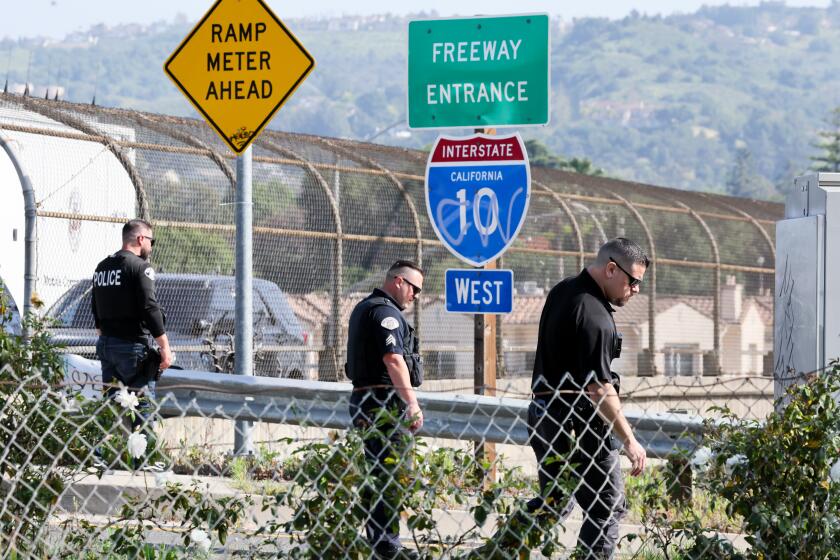L.A.’s Dawdling Ports
Ocean freighters waiting to unload containers are stacked up at the Los Angeles and Long Beach ports like trucks on the Long Beach Freeway. You would think that, with Christmas around the corner, the ports would be open day and night to ease the crunch. Wrong. It’s business as usual -- meaning 8 a.m. to 5 p.m., Monday through Friday.
Terminal operators promised a year ago to extend gate hours into nighttime or to Saturdays, beginning this month. The impetus then was a deadly crash on the congested 710 Freeway, which bears the brunt of truck traffic to and from the ports. Keeping the ports open nights or weekends would not only reduce truck trips during peak traffic times, but it would help ease diesel emissions caused by idling big rigs and container ships. The ports are the biggest source of air pollutants in Southern California.
Granted, expanding hours is not as simple as it sounds. It would involve the coordination of ocean freighters, dockworkers, trucking companies and the warehouses that receive the goods. But with a push from Los Angeles City Councilwoman Janice Hahn, who was tired of being told nothing could be done, terminal operators sat down with shippers and retailers to draw up a plan. Because they were making progress in August, Assemblyman Alan Lowenthal (D-Long Beach) agreed to pull a bill that would have made nighttime operations mandatory.
With the threat of legislation gone, the group dropped anchor. Terminal operators say they had to delay even a pilot program because of a labor shortage. The longshoremen’s union counters that the ports simply didn’t hire enough workers.
There is no shortage of people wanting port jobs. An August ad for 3,000 temporary workers drew half a million applicants from across the country. Unloading goods is one of the best-paying blue-collar jobs left now that so many manufacturing jobs have gone overseas. Indeed, one reason for the surge in cargo is that products that used to be made in the United States now have to be shipped here from elsewhere.
Hiring more workers and paying them to work off-peak hours would be costly to the ports -- probably translating into higher consumer prices for imported goods. Surcharges on peak-hour shipping, likely to be needed to persuade shippers, truckers and warehouse operators to work nights and weekends, would also be expensive.
But the cost of doing nothing -- whether that cost involves pollution, traffic gridlock or the delayed shipment of cars and kitchen cabinets to the 40% of the country that gets its goods through the Los Angeles- Long Beach port complex -- is higher still. Unless the Legislature can bring back manufacturing jobs or convince Americans that they really don’t need more stuff, it should revive the measure to mandate longer port hours.
More to Read
Start your day right
Sign up for Essential California for news, features and recommendations from the L.A. Times and beyond in your inbox six days a week.
You may occasionally receive promotional content from the Los Angeles Times.






